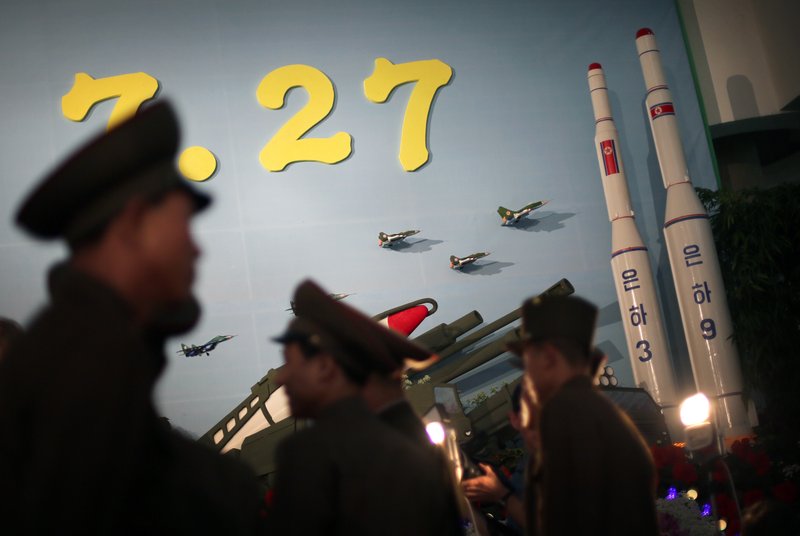TOKYO -- North Korea announced Tuesday that it is planning a rocket launch as soon as next week.
North Korea's announcement, which it made by informing international organizations of a launch window between Monday and Feb. 25, comes after what it claimed was its first H-bomb test, on Jan. 6, and statements by U.S. and Japanese officials that they were seeing heightened activity at North Korea's main rocket facility.
The news also came hours after China's point man on Korean matters arrived in Pyongyang for talks, possibly about the nuclear test, which Beijing has denounced.
North Korea typically informs groups such as the International Maritime Organization of a pending launch so warnings can be issued for shipping in the area. The organization's media office in London confirmed that it had been informed of the plan on Tuesday.
United Nations deputy spokesman Farhan Haq said North Korea also informed the International Civil Aviation Organization and the International Telecommunication Union of the planned satellite launch.
"Right now, we're carefully monitoring developments and are in close touch with the interested parties and the international organizations," Haq said at U.N. headquarters in New York.
In Washington, Daniel Russel, the top diplomat for East Asia, said the U.S. was closely tracking reports of the North's planned launch. He said a launch that uses ballistic missile technology would be another violation of a U.N. ban and strengthens the argument for the international community to impose "real consequences" on North Korea for destabilizing behavior. He called for the imposition of additional sanctions.
Russel said a launch "would be an unmistakable slap in the face to those who argue that you just need to show patience and dialogue with the North Koreans but not sanctions," in an apparent reference to China.
A South Korean official, who spoke on condition of anonymity because of office rules, said Seoul was also informed of the plans.
The announcement ends speculation over whether North Korea was preparing a rocket. Although it says the rocket will carry a Kwangmyongsong -- or Bright Star -- Earth observation satellite, the type of rocket that will be used is not yet clear.
There are indications -- including the construction of a new and taller gantry, visible in commercial satellite imagery -- that it could be a bigger version of the Unha 3 space launch vehicle that lifted off from the Sohae facility in 2012, on the west coast of North Korea.
The Unha 3 successfully delivered North Korea's first satellite into Earth's orbit. A January 2013 report by Rodong Sinmun, which has since been deleted from the ruling-party newspaper's online edition, quoted a scientist as saying there would be a series of launches of observation and communication satellites culminating with Unha 9, which would carry a lunar orbiter.
Models of the larger Unha 9 rocket have since been displayed at various events in North Korea, including annual flower shows held in honor of national founder Kim Il Sung and his son, Kim Jong Il. Unha means galaxy.
North Korea has spent decades trying to develop operational nuclear weapons. It calls its rocket launches satellite missions, but the U.N., the United States, South Korea and others say they are meant to test ballistic missile technology.
The U.N. Security Council prohibits North Korea from nuclear and ballistic missile activity.
North Korea says it has the right to maintain a peaceful space program.
Tightening its punitive squeeze on North Korea, the U.S. Treasury on Jan. 17 announced sanctions on 11 individuals and entities involved in Iran's ballistic missile program, including Iranian officials it said had direct links to North Korea and work being done by the North on "an 80-ton rocket booster."
It said two of the sanctioned Iranians "have been critical to the development of the 80-ton rocket booster, and both traveled to Pyongyang during contract negotiations."
Whether the booster would be a new first stage for the Unha rockets or something different is not known.
Making firm predictions has become more difficult because of increasingly sophisticated concealing measures that North Korea has been developing over the past several years at its main launching facility, including construction of an underground railway that allows rocket stages to be transported stealthily to the site.
Information for this article was contributed by Matthew Pennington and Hyung-jin Kim of The Associated Press.
A Section on 02/03/2016


